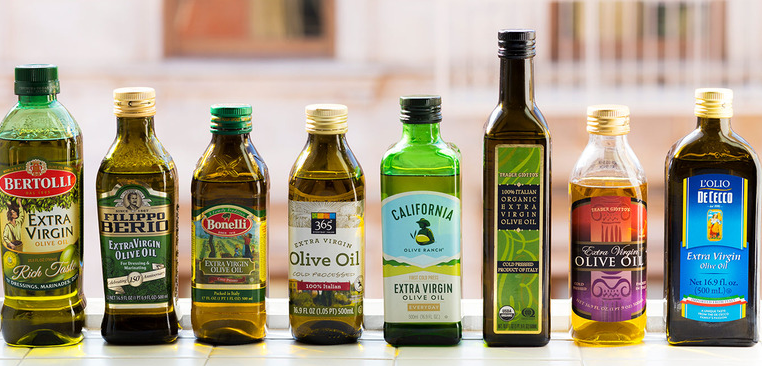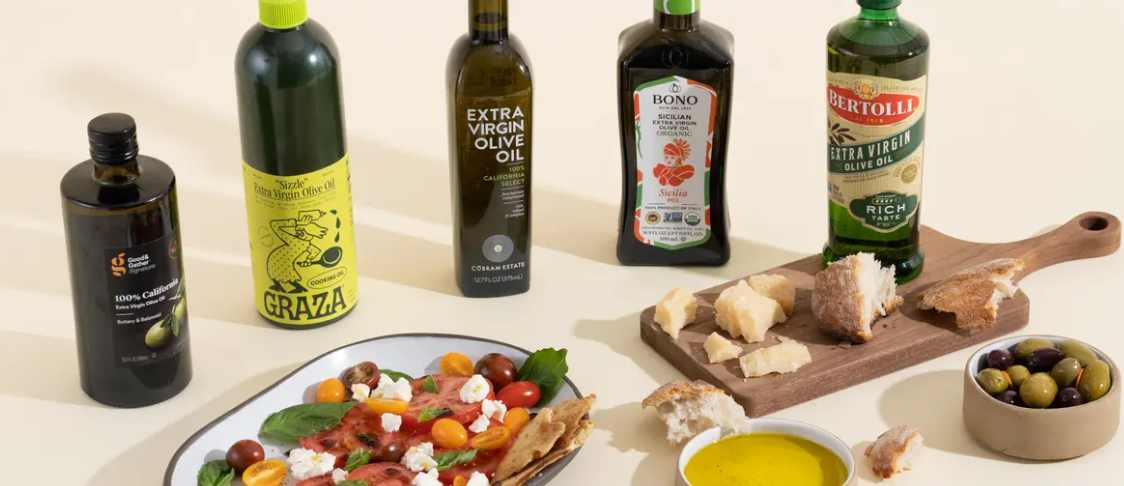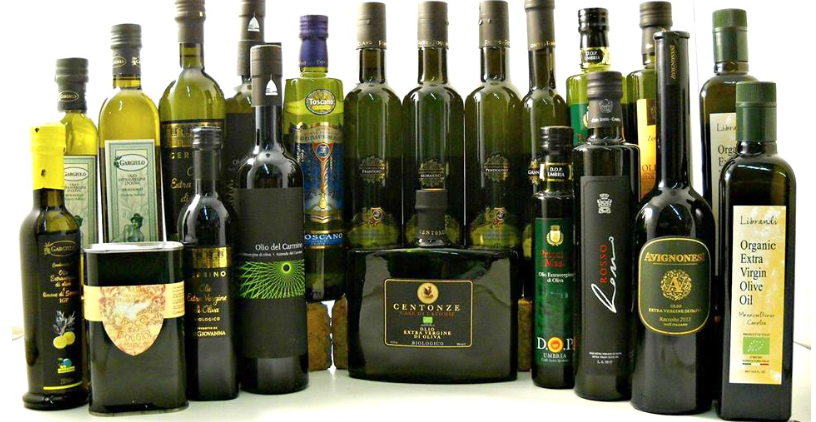Best Olive Oil Revealed: How to Pick Quality for Cooking, Health, and Taste
Olive oil is widely regarded as a fundamental ingredient in culinary practices and is esteemed for its numerous health benefits, versatility in various cooking techniques, and distinctive flavor profile. However, the abundance of olive oil varieties available in the market may render the selection process daunting, particularly when considering factors such as health implications, personal taste preferences, and specific cooking requirements. This guide aims to elucidate the selection process, thereby enabling individuals to make informed choices regarding high-quality oil that aligns with both culinary aspirations and health objectives.
Why Quality Olive Oil Matters
The selection of high-quality oil is critical due to its rich content of antioxidants, beneficial fats, and essential nutrients. It should be note that not all olive oils deliver equivalent health benefits; indeed, the processing of certain oils can result in a loss of both flavor and nutritional value. Premium oil is characterize by a high concentration of heart-healthy monounsaturated fats, as well as inflammation-reducing antioxidants such as vitamin E, which collectively contribute substantially to overall health (Mayo Clinic).
For further information regarding antioxidants and their associate health benefits, reference is made to the comprehensive article on Health Boosterss.
Essential Tips for Choosing the Best Oil
This document serves as a comprehensive guide outlining essential considerations for selecting a high-quality oil.
Selection of Extra Virgin Olive Oil (EVOO)
Extra Virgin Olive Oil, commonly abbreviated as EVOO, is characterized by its unrefined nature, which enables it to maintain a higher concentration of nutrients and flavor in comparison to refined oils. Distinct from standard or “light” olive oils, which typically undergo chemical processing, EVOO is produced through a cold-pressing method that preserves its advantageous compounds, thus rendering it a superior option for both health benefits and culinary applications (Olive Oil Times).
Consideration of Country of Origin and Harvest Date
Olive oils of the highest quality are frequently source from Mediterranean regions, particularly Italy, Spain, and Greece, which are renown for their exceptional olive cultivation practices. It is also advisable to verify the harvest date, with a preference for oils produced within the past year, as the quality of oil diminishes over time (Healthline). For additional insights regarding olive oil production and its origins, reference is made to relevant literature available on Health Boosterss.
Importance of Packaging and Proper Storage
The utilization of dark glass bottles is recommend for preserving olive oil, as such packaging effectively protects the oil from detrimental light exposure that can compromise its quality. Olive oil should consistently be store in a cool, dark environment and seal securely to ensure the retention of its freshness and flavor (American Heart Association).
Top 10 Olive Oil Brands in the World
The brands listed below are globally acknowledged for their exemplary standards in quality and taste within the olive oil market:
- Laudemio Frescobaldi is distinguish by its rich flavor profile and Italian heritage.
- California Olive Ranch has gained popularity for its combination of quality and affordability.
- Bertolli Extra Virgin Olive Oil is recognize as a reliable brand due to its balance and versatile flavor.
- Ellora Farms holds European Union certification for high-quality production standards.
- Oliviers & Co. offers premium blends characterized by a gourmet edge.
- Castillo de Canena is an award-winning Spanish brand celebrated for its superior taste.
- Kirkland Signature Organic Extra Virgin Oil is not for its exceptional quality and value.
- Colavita Extra Virgin Oil is characterized by a mild flavor, making it suitable for a variety of culinary applications.
- Partanna Extra Virgin Oil is renowned for its robust and peppery taste.
- Lucini Italia is an artisan brand committ to sustainable organic farming practices.
Additional information regarding the advantages and evaluations of these olive oils can be use on high-authority websites such as WebMD, as well as in reviews available on Health Boosterss.
Best Oil for Cooking
Different kinds of olive oil fit different cooking needs:
- Extra Virgin Olive Oil (EVOO): It’s great for low to medium heat cooking or drizzling on top of dishes because of its strong taste and lots of nutrients.
- Virgin Olive Oil: A bit lower in quality, it’s okay for light sautéing.
- Refined Oil: Has a mild flavor which makes it good for high-heat cooking without burning or tasting bitter.
Choosing the right kind of olive oil can change your meals, from fresh salads to filling pasta dishes. For example, EVOO can give a nice, peppery kick to salads, while the lighter oils are better for frying (Harvard T.H. Chan School of Public Health).
Learn more about how cooking with olive oil can affect your Health Boosterss.
Best Oil for Health and Daily Use
If you want to add the best oil to your everyday meals, having raw EVOO is the best way to get the most health perks. It’s a key part of the Mediterranean diet and people usually love it with bread or drizzled on salads. The olive oil that’s best to drink every day should be fresh, unfiltered, and packed with polyphenols, which help your heart and cut down inflammation (American Heart Association).
For the best results, one or two tablespoons a day work well. Eating raw olive is connect to lower cholesterol, helping your heart, and boosting overall wellness (Mayo Clinic).
You should check out more heart health tips on Health Boosterss.
How to Store Olive Oil for Maximum Freshness
Olive oil doesn’t do well with light, heat, and air, so it’s really important to store it right to keep its taste and quality.
- Keep It in a Cool, Dark Spot: Make sure to avoid direct light and heat, like from a stove.
- Close the Bottle Tight: This helps stop air from getting in, which can make the oil go bad.
- Use It Up Within Six Month: After you open it, try to use the olive oil within six months for the best freshness and health perks (Healthline).
If you want more tips on how to store olive oil, check out our complete guide on Health Boosterss.
Key Features to Identify Quality Olive Oil
When you’re picking out olive oil, keep an eye out for these signs of good quality:
- Low Acidity: Extra virgin olive oil should have an acidity below 0.8%.
- A Fruity, Maybe a Bit Bitter, or Even Spicy Taste: This shows there’s a lot of good polyphenols in there.
- Certification Seals: Look for labels from the California Olive Oil Council (COOC) or the European Union’s Protected Designation of Origin (PDO), since they mean that it meets high-quality standards.
These things can help make sure it’s real and packed with nutrients. If you want to know more about how olive oil is grade and what the certifications mean, check out trusted sites like WebMD or have a look at our article on Health Boosterss.
FAQs
Can I use extra virgin olive oil for cooking?
Sure thing! EVOO works best when you’re cooking on low or medium heat, so it keeps its good stuff and taste.
How much olive oil should I take in each day for health perks?
It’s suggest to have about one to two tablespoons a day for heart and overall health benefits, according to the American Heart Association.
Is olive oil good for managing weight?
Olive oil can help you feel full and aids in metabolism thanks to its healthy fats. If you want more tips on managing weight, check out our Health Boosterss.
What’s the difference between regular olive oil and EVOO?
EVOO is the top grade, cold-presse without any chemicals, while regular olive oil gets refine and often mixed with other oils, base on info from Harvard T.H. Chan School of Public Health.
Video Resources to Learn More About Olive Oil
Explore these helpful videos to understand olive oil’s uses and benefits better:
- Olive Oil 101: Cooking Tips and Health Benefits
- The Mediterranean Diet: Health Benefits and Olive Oil’s Role
Conclusion: Choosing the Best Olive Oil for Health and Flavor
Picking the best oil is about understanding its origin, the way it’s make, and what different types bring to the table. Whether you’re using it for cooking, adding to your meals, or just enjoying it, quality oil is worth it because of its distinct taste and health perks. Try to include olive oil in your diet for better health and a nicer cooking experience.
If you want more tips on staying healthy, check out our other articles on Health Boosterss. For detailed information, take a look at trusted places like Healthline or WebMD.



